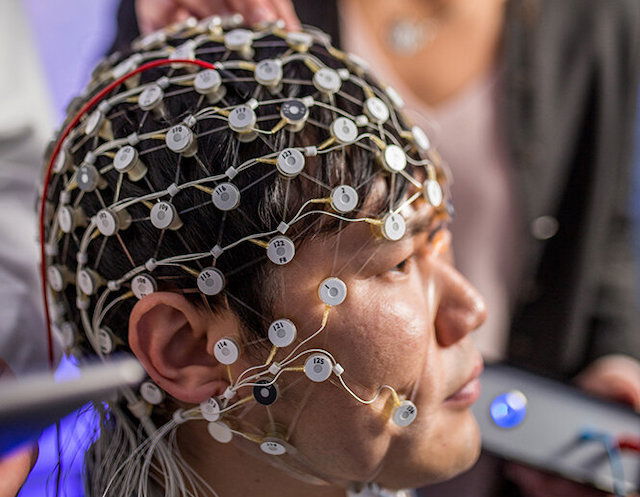
A new study has shown that brain stimulation could help reduce depression symptoms.
The brain stimulation method is called transcranial alternating current stimulation, or tACS.
The study was conducted by researchers from the University of North Carolina Health Care.
Previous studies have shown that a common brain stimulation technique called transcranial direct stimulation (tDCS) may help treat depression.
In tDCS, a steady stream of weak electricity is sent through electrodes attached to various parts of the brain.
However, tDCS has had mixed results in treating depression.
In the present study, the researchers used the newer tACS, which is different from the tDCS.
The tACS approach focuses on each patient’s specific alpha oscillations, which appear as waves between 8 and 12 Hertz on an electroencephalogram (EEG).
The alpha waves usually occur when our brains shut out sensory stimuli, such as what we see, feel, and hear.
In depression people, the alpha waves are overactive in the left part of the brain.
The team aimed to target these alpha waves to bring them back in synch with the alpha waves in the right part of the brain.
They examined 32 people diagnosed with depression.
They found with a weak electrical current sent through electrodes attached to the scalp, they could change an electrical pattern in the brain improved depression symptoms in 70% of participants.
These patients reported at least a 50 percent reduction of depression symptoms. A few of the participants had very dramatic decreases in their symptoms.
The researchers believed their findings lays the groundwork for using tACS to treat people diagnosed with major depression.
They hope the study will be helpful to develop approaches to help many people in a relatively inexpensive, noninvasive way.
Future work will keep exploring the use of tACS in treating psychiatric illnesses.
The study senior author is Flavio Frohlich, Ph.D., associate professor of psychiatry and director of the Carolina Center for Neurostimulation.
The research is published in Translational Psychiatry.
Copyright © 2019 Knowridge Science Report. All rights reserved.



